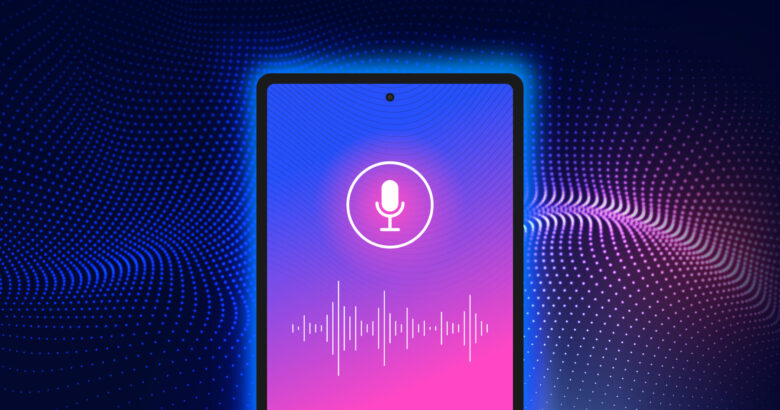Voice search has become an increasingly popular way for people to search for information online. As a result, marketers are now looking for ways to leverage this technology to reach their target audiences.
What is Voice Search?
Voice search is a technology that allows users to search for information using their voice. It is a type of natural language processing technology that enables users to speak their queries into a device, such as a smartphone or a computer, and receive results in the form of text or audio. Voice search has become increasingly popular in recent years as more people have access to devices with voice recognition capabilities.
Voice search is powered by artificial intelligence and natural language processing. AI is used to interpret the user’s voice and convert it into text, while NLP helps the system understand the meaning behind the words. This allows it to provide more accurate results than traditional keyword-based searches.
Voice search has many advantages over traditional keyword-based searches. For one, it is much faster and easier to use than typing out queries on a keyboard or touchscreen. It also eliminates the need for users to remember exact keywords or phrases, which can be difficult when searching for complex topics or unfamiliar terms. Additionally, voice search can be used hands-free in situations where typing would be impractical or dangerous, such as while driving or cooking.
The most popular applications for voice search are virtual assistants such as Amazon Alexa and Google Assistant. These services allow users to ask questions about topics ranging from sports scores to stock prices and receive answers in real-time. They can also be used to control smart home devices such as lights and thermostats with simple voice commands. In addition, many businesses are now using voice search technology on their websites and apps to make it easier for customers to find what they’re looking for quickly and easily.
How is Voice Search Used in Marketing?

Voice search can be used in marketing in several ways. It can be used to target specific audiences. For example, if you’re targeting young adults, you could use voice search to find out what topics they’re interested in and create content that speaks directly to them. You could also use voice search to find out what questions they’re asking about your product or service and create content that answers those questions.
Voice search can be used to create more engaging content. People are more likely to engage with content when it’s presented interestingly or when it speaks directly to them. By using natural language processing (NLP) technology, marketers can create content that sounds like a conversation between two people rather than a robotic monologue from a computer. This type of content is more likely to engage users and keep them coming back for more information about your product or service.
Marketers can use voice search optimization techniques to ensure their content appears higher up in the results when someone does a voice search for related keywords or phrases. VSO involves optimizing your website for natural language searches so that it appears higher up in the results when someone does a voice query related to your product or service. This includes optimizing titles and meta descriptions for natural language queries as well as using structured data markup on your website so that Google understands what type of information you have on each page of your site.
Overall, voice search is becoming increasingly popular and marketers should take advantage of this technology by targeting specific audiences, creating engaging content, and optimizing for natural language searches through VSO techniques. By doing so, they will be able to reach new customers and increase their visibility online which will ultimately lead to increased sales and profits for their business.
Benefits of Voice Search for SEO

SEO (Search Engine Optimization) – is a large set of measures presented on the company’s website, which will help your website rank higher in search results. As voice search becomes more popular, businesses need to understand the benefits of voice search for SEO.
Voice search has the potential to revolutionize the way people interact with their digital devices. By using natural language processing, voice search can provide users with more accurate and relevant results than traditional text-based searches. This means that businesses can benefit from increased visibility in the SERPs (Search Engine Results Pages) when they optimize their content for voice search.
One of the main benefits of optimizing content for voice search is improved user experience. When users use a voice-enabled device to ask a question, they expect an immediate response that accurately answers their query. If your website is optimized for voice search, it will be easier for users to find what they are looking for quickly and easily. This will result in higher engagement rates and increased conversions on your website.
Another benefit of optimizing content for voice search is improved local SEO performance. When users use a voice-enabled device to ask questions about local businesses or services, they expect to receive results that are tailored to their location. By optimizing your content with local keywords and phrases, you can ensure that your business appears in the SERPs when users perform local searches via their digital assistant or smart speaker. This will help you reach more potential customers in your area who may not have found you through traditional text-based searches.

Optimizing content for voice search can also help you improve your overall SEO performance by increasing organic traffic from Google Assistant and other digital assistants such as Amazon Alexa and Apple’s Siri. As these digital assistants become more popular, they will become an increasingly important source of organic traffic for businesses that optimize their content accordingly. By optimizing your content with relevant keywords and phrases related to natural language queries, you can ensure that your website appears in the SERPs when users ask questions via their digital assistant or smart speaker.
Overall, optimizing content for voice search can be extremely beneficial for businesses looking to improve their SEO performance and reach more potential customers through organic traffic sources such as Google Assistant and other digital assistants like Amazon Alexa and Apple’s Siri.
By understanding how these devices work and how people use them to ask questions about local businesses or services, you can ensure that your website appears in the SERPs when users perform local searches via their digital assistant or smart speaker which will result in increased visibility in the SERPs as well as higher engagement rates on your website which could lead to increased conversions over time

